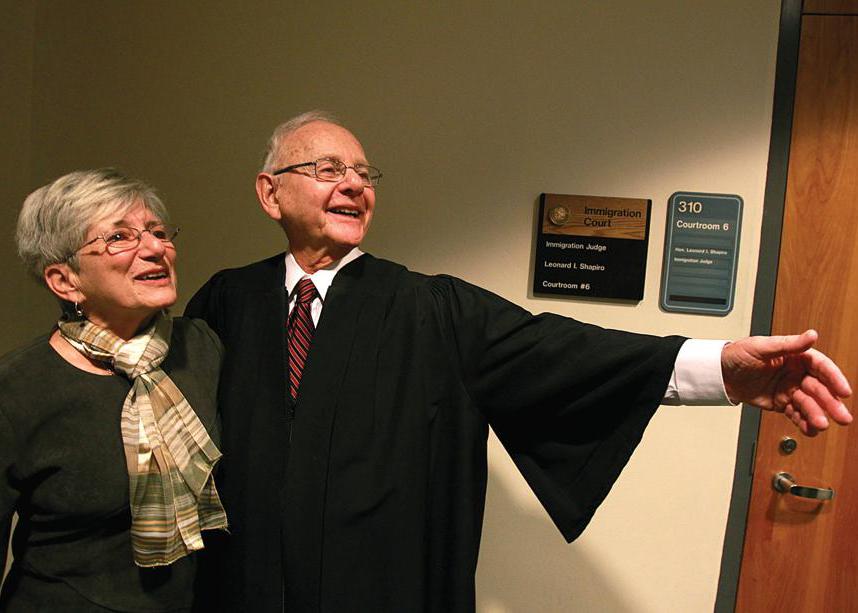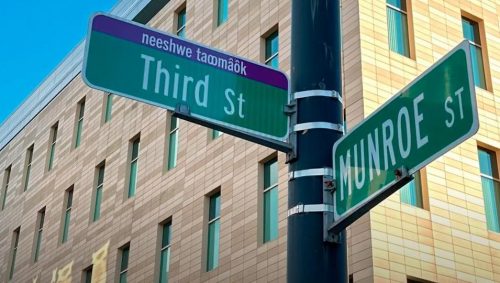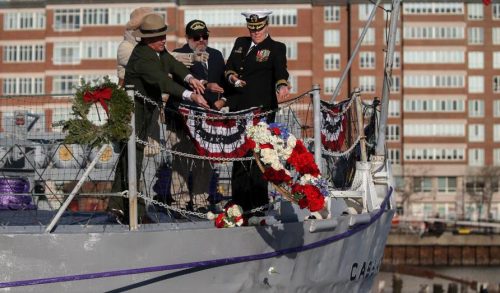As an immigration judge in Boston, Leonard Shapiro made international news twice when he allowed President Barack Obama’s Kenyan aunt and uncle to remain in the United States in high-profile deportation cases.
For those cases, the political backdrop and the cacophony of pundits overshadowed Mr. Shapiro’s careful consideration of how the law and judicial discretion could and should be applied.
A few years after those rulings, just before turning 80, Mr. Shapiro issued his final decision in 25 years of hearing immigration appeals. Sometimes his orders brought joy to those standing before him. More often, though, he sent applicants away from America when the facts of their cases or the law determined that they couldn’t stay.
But in December 2013, Mr. Shapiro told Onyango “Omar’’ Obama, the president’s uncle, that he could get a green card and eventually apply for US citizenship, even though he had lived in the United States illegally for years. “Congratulations,’’ the judge said after announcing his decision. “Welcome to America.’’
Mr. Shapiro, the son of a Russian immigrant who spent nearly all of his career representing immigrants as a lawyer or deciding their fates as a judge, died last week, less than a month after being diagnosed with lymphoma. He was 88 and in retirement had moved with his wife to Reston, Va., to live closer to their son.
In the highly charged arena of asylum requests, many decisions to allow applicants to remain in the United States are criticized. Mr. Shapiro was no stranger to being on the receiving end of outrage, particularly with Obama’s relatives.
In 2010, he drew criticism after granting asylum to Zeituni Onyango, the president’s aunt. She was living in public housing in Boston and years earlier had defied orders to leave the country.
While critics believed politics played a role, immigration lawyers who had appeared before Mr. Shapiro insisted that couldn’t be the case.
“Any notion that he was just doing what he was told is ludicrous,’’ William Joyce, an immigration lawyer and former immigration judge, told the Globe at the time, adding that Mr. Shapiro was an independent judge with the “utmost integrity.’’
Indeed, according to documents compiled by the Transactional Records Access Clearinghouse at Syracuse University, Mr. Shapiro’s rejection rate for asylum cases was regularly higher than the state and national averages for judges.
Yet when he said no, which he did more often than he said yes, Mr. Shapiro did so with compassion.
“Anytime he denied a case, he would say exactly this: ‘Good luck on your appeal,’ and you could feel the sincerity of what he said,’’ said Saher Macarius, an immigration lawyer with a practice in Framingham.
“I cannot forget his face when he denied a case, but at the same time sympathized with the applicant and wished him luck,’’ Macarius said. “And the applicant walked out respecting him and not hating the United States.’’
Appointed an immigration judge in 1990 by the US attorney general when George H.W. Bush was president, Mr. Shapiro heard cases until the end of 2015.
When he retired, he was one of the longest-serving judges in immigration courts that are well known for their heavy caseloads and for having too little in the way of administrative resources.
Because of those burdens, and the highly emotional nature of deciding the fates of often frightened or weeping asylum applicants, many immigration judges burn out.
Mr. Shapiro stayed. He had turned to a legal career after realizing his psychology degree and a career in the mental health field were not the right fit.
The law, however, “meant everything to him,’’ said his wife, Judy.
“He listened and was compassionate,’’ she said. “But there were things he just could not do because of how the law was written. He understood the rationale of the law, but sometimes there were results that, as a compassionate human being, you might not like to have.’’
Sometimes immigration laws required Mr. Shapiro to essentially throw out of the country people whose criminal records might seem trivial, such as a Rhode Island man who had smashed a potted plant outside his mother’s house.
“I sit there on the bench sometimes and think, ‘There but for the grace of God go I,’’’ Mr. Shapiro said during a panel discussion at Southern New England School of Law, The Standard-Times reported in 2000.
Born in Boston on Jan. 10, 1936, Leonard Irwin Shapiro spent most of his childhood and youth in Brookline, growing up in a family that included his older sister, Judy.
His father, Max Shapiro, was a Russian immigrant who worked as a butcher, and his mother, Sara Mills Shapiro, worked with him in the butcher shop.
Mr. Shapiro later recalled that some Brookline High School classmates taunted him, calling him “butchie boy’’ — though in later years they knew to call him “your honor.’’ The lessons of that early humble life remained with him.
“His parents had no education, they didn’t have money, and he never forgot what that was like,’’ said his daughter Laurie Shapiro Mizrahi of Federal Way, Wash.
Mr. Shapiro graduated from the University of Massachusetts Amherst with a bachelor’s degree in psychology in 1957 and soon volunteered to serve first in the Army and then the National Guard.
While in the service, he took a class in military justice.
“The way he described it was that everybody else in the class was falling asleep, but he was inspired,’’ his wife said.
Mr. Shapiro and Judith Belastock met on a blind date and she was drawn to him because of his often self-deprecating sense of humor. “And he was a great storyteller,’’ she said.
They married in 1961, the year he graduated from Boston University School of Law.
He worked in the law offices of Robert G. Wolf from 1961 to 1972, and then in his own Boston firm, Shapiro and Glassman, until being appointed an immigration judge in 1990.
As an immigration lawyer, Mr. Shapiro “would do a very beautiful job of putting cases together’’ and mentoring those who followed in the field, said his longtime friend Richard Costa, who retired last year from the Boston firm of Costa & Riccio, which handled many immigration cases.
Mr. Shapiro also coauthored textbooks for immigration lawyers and judges, and served in leadership roles on immigration issues with legal organizations.
Yet with all his work commitments, “He put his family first, always,’’ said Mr. Shapiro’s son, Michael of Reston, Va.
“If we showed up at his office when he was a lawyer or at the courthouse when he was a judge,’’ Michael said, “he stopped everything and he really made you feel special.’’
In addition to his wife, daughter, and son, Mr. Shapiro leaves another daughter, Deborah Shapiro Dedrickson of Beaverton, Ore.; and five grandchildren.
A funeral service will be held at 1 p.m. Tuesday in Stanetsky Memorial Chapel in Canton.
For his last case, in December 2015, Mr. Shapiro granted asylum to a mother of two from El Salvador. She cried when he announced she could become a lawful permanent resident, able to start a new life.
“I have one request,’’ he said from the bench, “make me proud of you.’’
In a Globe interview afterward, Mr. Shapiro spoke about his final ruling. “There’s no feeling in the world like that,’’ he said. “As good as she feels, I feel better.’’
Bryan Marquard can be reached at bryan.marquard@globe.com.


